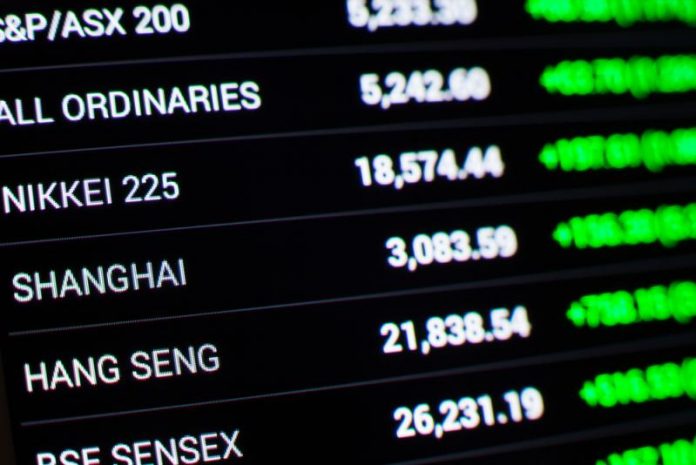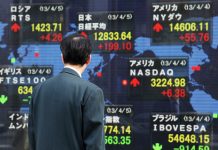
MONDAY: Asian shares crept higher on Monday after a tame reading on U.S. wages lowered the risk of faster rate hikes by the Federal Reserve, although Sino-U.S. trade tensions and a looming deadline for the Iranian nuclear deal argued for caution.
Oil prices hit their highest in more than three years as global supplies remained tight and the market awaited news from Washington on possible new U.S. sanctions against Iran.
President Donald Trump has set a May 12 deadline for Europeans to “fix” the deal with Iran over its nuclear program or he would refuse to extend U.S. sanctions relief for the oil-producing Islamic Republic.
Brent crude futures added 31 cents to $75.18 a barrel, while U.S. crude CLc1 climbed 44 cents to $70.16 to finally crack the $70 barrier.
The week ahead also has important readings on the health of the Chinese economy, and hence global demand, as well as the latest data on U.S. consumer price inflation.
MSCI’s broadest index of Asia-Pacific shares outside Japan put on 0.3 percent, while Chinese blue chips rose 0.7 percent.
E-Mini futures for the S&P 500 also inched up 0.25 percent. Japan’s Nikkei went the other way as a firmer yen trimmed 0.4 percent off the index.
Friday’s U.S. jobs report showed unemployment dropping to a new cycle low of 3.9 percent, yet wages remained benign, suggesting the Federal Reserve would keep raising rates but at a gradual pace.
That outlook cheered Wall Street where the Dow ended Friday up 1.39 percent, while the S&P 500 rose 1.28 percent and the Nasdaq 1.71 percent.
Apple Inc hit a record high after Warren Buffett’s Berkshire Hathaway Inc disclosed that it had raised its stake in the iPhone maker.
The recent run of solid U.S. economic news contrasts with a softer turn in European data and lifted the dollar to its highest for the year so far against the euro.
The single currency was last at $1.1973, having been down as deep as $1.1911 on Friday. The dollar also reached its highest since December against a basket of currencies and was last trading at 92.463.
It had less luck against the Japanese yen, in part because strains in emerging market currencies were supporting safe havens such as the yen. The dollar eased off to 108.89, having topped out around 110.05 last week.
Markets from Argentina to Turkey have been under intense pressure, in part because many of these countries have large amounts of U.S. dollar debt which gets more expensive to finance as the currency rises.
A firming U.S. dollar has also been negative for some commodities, with gold falling for a third straight week before bouncing slightly on Monday to $1,318.16 an ounce.






